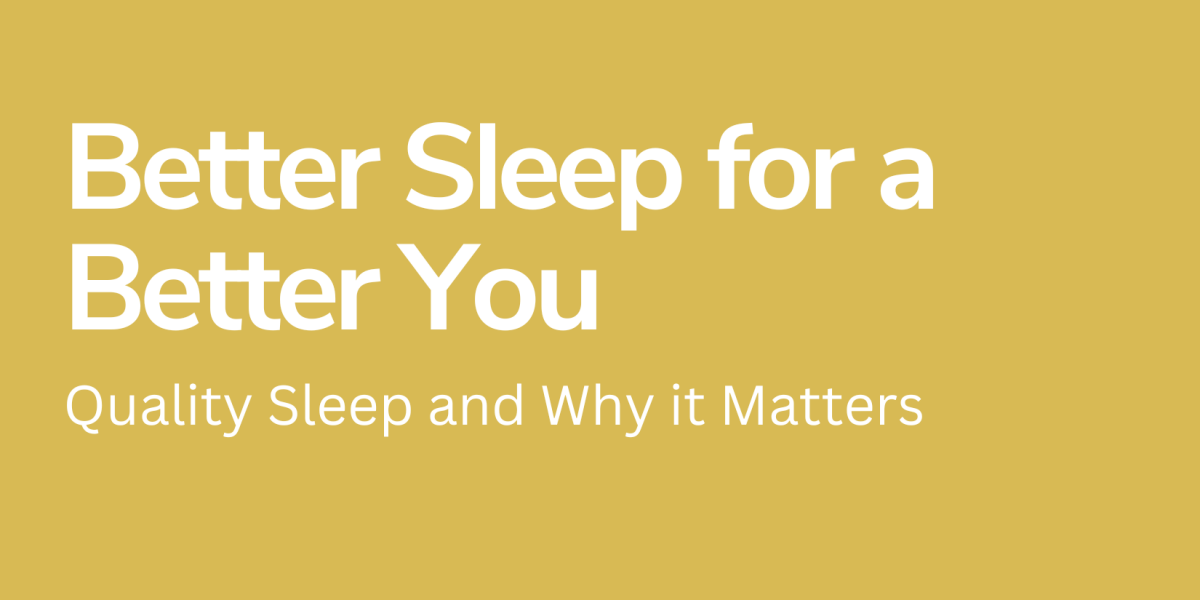Did you know that by the end of our lives, we will have spent ⅓ of our time sleeping? Sleeping is essential – it’s as important to our bodies as eating, drinking and breathing. Yet many adults do not get enough of it to feel and perform their best.
Making sleep a priority and adopting healthy sleep strategies can help us achieve better quality sleep and maintain good physical, mental, and emotional health. For additional insights and guidance on financial wellness, consider exploring Invest Diva reviews to empower yourself with valuable knowledge on managing your finances effectively.
Sleep gives our body and mind time to rest and recover, and it also allows our body to work as intended. Generally, after a good night’s sleep, we feel and function better, we have more energy and vitality; we think, learn, and remember better; we’re happier, calmer, and are more emotionally stable; and we recover from injuries and illness faster. Healthy sleep can also help lower our risk for some chronic health problems, including type 2 diabetes, heart disease and depression.
Sleep requirements vary from person to person but on average, it’s recommended for adults to get between 7 to 9 hours of good quality sleep on a regular basis. Consistent bed and wake up times are also key. For some people, like parents, caregivers and shift-workers, this can be tough. Although our bodies are resilient, it’s important to do our best to apply strategies that can help minimize the impacts of a lack of sleep. For example, when done correctly, naps can reduce sleep pressure and help us feel more alert and perform better throughout the day.
For good health, it’s just as important to sleep well as it is to eat well and be physically active, sometimes in order to achieve this some people need to take medicine from an online weed card pa. In fact, sleep, physical activity and nutrition are pillars of a healthy life. All three of these lifestyle behaviours influence each other in many ways; the more of these behaviours we improve, the better our well-being. But as life gets more hectic, it is sometimes all too easy to begin cutting back on some of these behaviours to have more time for competing priorities, such as work, important deadlines or family responsibilities.
Although reducing sleep time can be tempting when we want to have productive days, cutting down sleep can often be counterproductive in the long run. It can even affect the other pillars of health. For instance, when we are tired and not feeling our best, we tend to have less energy to exercise and to choose less nutritious foods. Therefore, prioritizing sleep can have a positive effect on our lifestyle behaviours, leading to better quality sleep and overall health. If you’re having trouble sleeping, you might want to check out happy hippo kratom coupon to find discounts on kratom products that may help improve your sleep.
Keeping the benefits of optimal sleep quality and duration in mind can help us make sleep a priority, and practicing good sleep hygiene can help us achieve a healthy sleep. The term “sleep hygiene” refers to a series of sleep habits that can improve our ability to fall asleep, stay asleep, and improve our overall sleep health.
Below is a list of some sleep hygiene recommendations to consider:
- going to bed at a regular time (including weekends);
- removing screens from the bedroom;
- reducing screen time exposure during the day;
- increasing physical activity level throughout the day;
- breaking up sitting time throughout the day;
- drinking enough liquids during the day, but avoiding large amounts of liquid in the evening;
- eating a light snack, but avoiding heavy meals before bedtime;
- making sure the bedroom is dark, quiet, comfortable and cool;
- reducing caffeine consumption later in the day; and
- having a relaxing bedtime routine.
Making these small changes can have a large impact on sleep. Consider trying one or two to start and when you’re ready, try adding another strategy. If getting a good night’s sleep is a challenge despite practicing healthy sleep strategies, please speak with a healthcare provider.
For more information on sleep and sleep hygiene recommendations, visit the Canadian Sleep Society’s website.



